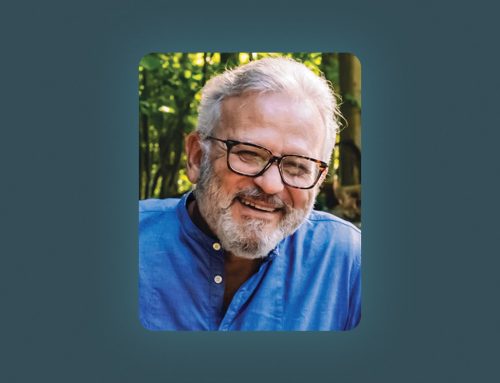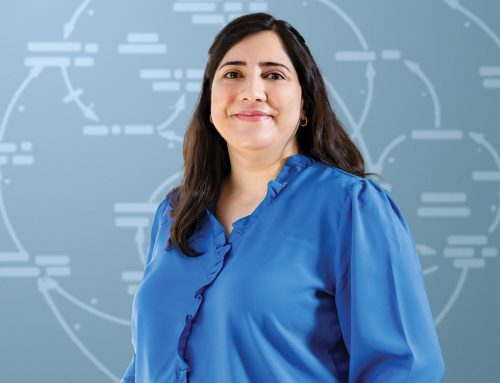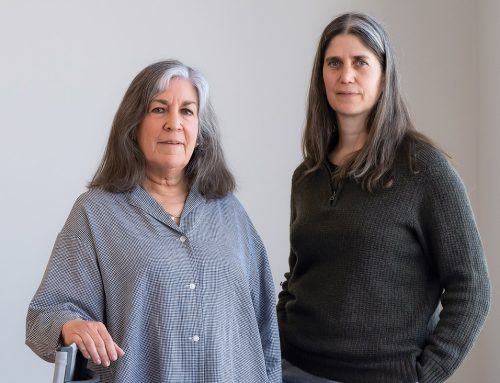
Traditionally, the worlds of public health and entrepreneurship don’t significantly overlap, but Professor Terry Huang has set out to change that through a bold initiative called Firefly Innovations. The platform, a marriage of public health expertise and the entrepreneurial mindset, is based at CUNY SPH and extends outward to a growing network across the globe.
The entrepreneurial mindset is about leadership, bold ideas and a willingness to take risks. TED Talk star Brené Brown, in her recent film on the theme of “courage,” quotes President Theodore Roosevelt, who said that courage, a key component of risk-taking, means “daring greatly.” And that in turn means allowing yourself to fail.
Huang agrees. Embracing the challenge of innovation means failing often and rapidly, learning from our failures and finding our way to solutions that work.
It all started in 2019, when Huang and Alessandro Ciari, a CUNY SPH student at the time, met serendipitously one evening off-campus. Ciari introduced himself and mentioned that he had worked on a waste management startup prior to doing his MPH degree. Huang was pleasantly surprised that an MPH student had entrepreneurial experience and proceeded to describe his own vision of creating an entrepreneurship program at the school. He invited Ciari to sit down with him to sketch out what such an initiative would look like.
During several conversations, the two men found common ground. Tackling today’s complex and seemingly intractable problems in public health, they agreed, would require an all-hands-on-deck approach that engages the public, nonprofit and private sectors, as well as people with lived experience in affected communities. These latter innovators, Huang says, often become some of the most passionate, effective entrepreneurs of all.
What is Firefly Innovations?
The goal of Firefly Innovations is to “identify, cultivate and accelerate impact-driven public health ventures.” Instead of the top-down approach that is often integral to the public health paradigm, Huang advocates a bottom-up strategy that places patients and others with lived experience at the center of the process.
Huang named the platform “Firefly” because the tiny creature’s many diverse species echo the diversity of the startup founders the organization serves. As well, the firefly is universally recognized as a symbol of light, hope and inspiration.
Firefly Innovations, a unique public health entrepreneurship platform housed within CUNY SPH, offers courses, trainings, fellowships and a Summer Accelerator, which Huang describes as “an intensive eight-week session during which we work with competitively selected public health startups.” The idea is to prepare them to access the market and scale up their ventures for maximum impact. After participating in the accelerator, many ventures have gone on to successfully secure new business, contracts, funding, partnerships and team members.
Launched officially in 2020, Firefly Innovations has a strong focus on solutions that advance health equity. It has been particularly successful at drawing in women and minority startup founders. Of the roughly 50 ventures that have been actively supported or accelerated, over 90% have at least one minority founder and half are women-led.
Ciari served as a program manager and later as an assistant director for the platform until early 2023, when he joined a private company, called coLab, that consults for venture funds and helps accelerate innovative solutions for corporations. This year, Firefly Innovations contracted with coLab to assist in operating the 4th annual CUNY Public Health Innovation Accelerator, centered on the theme of health equity.
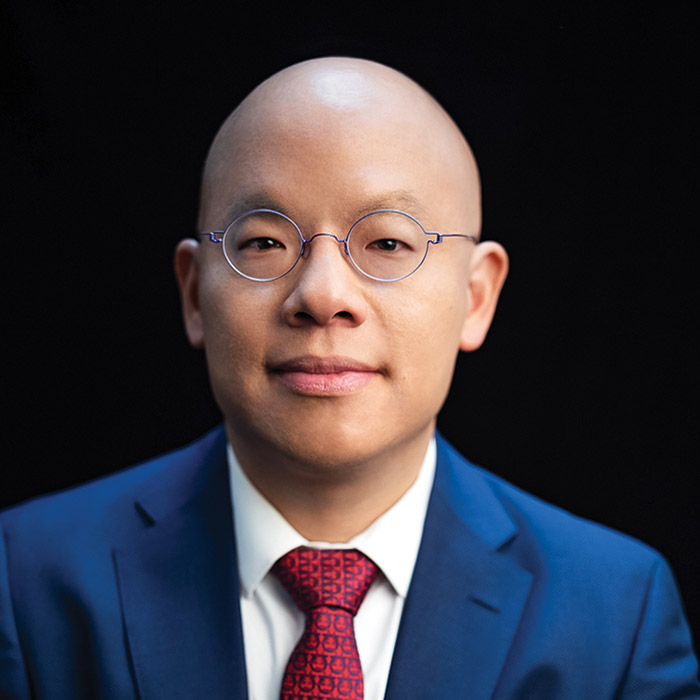
Terry Huang
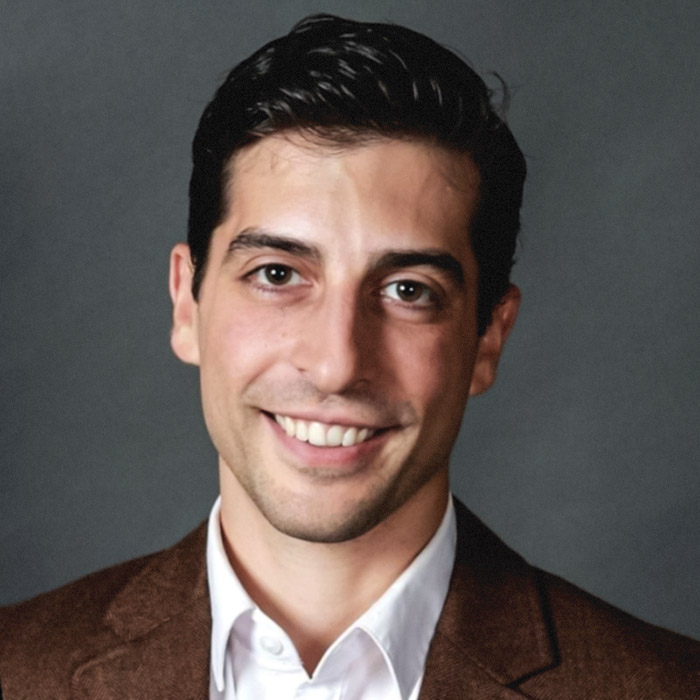
Alessandro Ciari
The professional connector
With growing momentum, and with a focus on scaling Firefly’s impact and ensuring the platform’s long-term sustainability, Huang recruited entrepreneur W. Michael Short to serve in the newly created position of Managing Director. Huang and Short met in late 2022 while serving as judges of a pitch competition at the New York Artificial Intelligence Summit and Short started his new role with CUNY SPH in January of this year. With a background in economic development, community engagement, and scaling organizations and ventures, Short brings a lot to the table, Huang says, including a holistic view of creating lasting change.
“He’s the one able to make connections and put together all the disparate pieces of a public health venture to optimal effect,” says Huang.
“Terry and I share a firm belief in the entrepreneurial ingenuity of the American people and by supporting community entrepreneurs with bold ideas, market-based solutions, and unwavering determination, we can solve the cascading crisis of public health challenges that we face,” said Short. “Entrepreneurship has the power to revolutionize public health by driving innovation and fostering collaboration in order to create a healthier and more resilient nation and world.”
Short sees connections and opportunities wherever he looks. For example, the software used by a dating service turned out to be just the ticket for a new app that matches startups with funding opportunities. Accustomed to thinking big, he’s always on the lookout for linkages and interdependencies between public health and other sectors that might at first seem unrelated but are connected at a deeper level.
In addition to his entrepreneurial ventures, Short’s new role with CUNY SPH builds on his existing work with CUNY at Medgar Evers College School of Business where he served as Managing Director of the International innovators Initiative, which was a joint initiative of CUNY, the City of New York, and NYC Economic Development Corporation that focused on recruiting the most promising entrepreneurs throughout the world to relocate to NYC and to work with CUNY campuses.
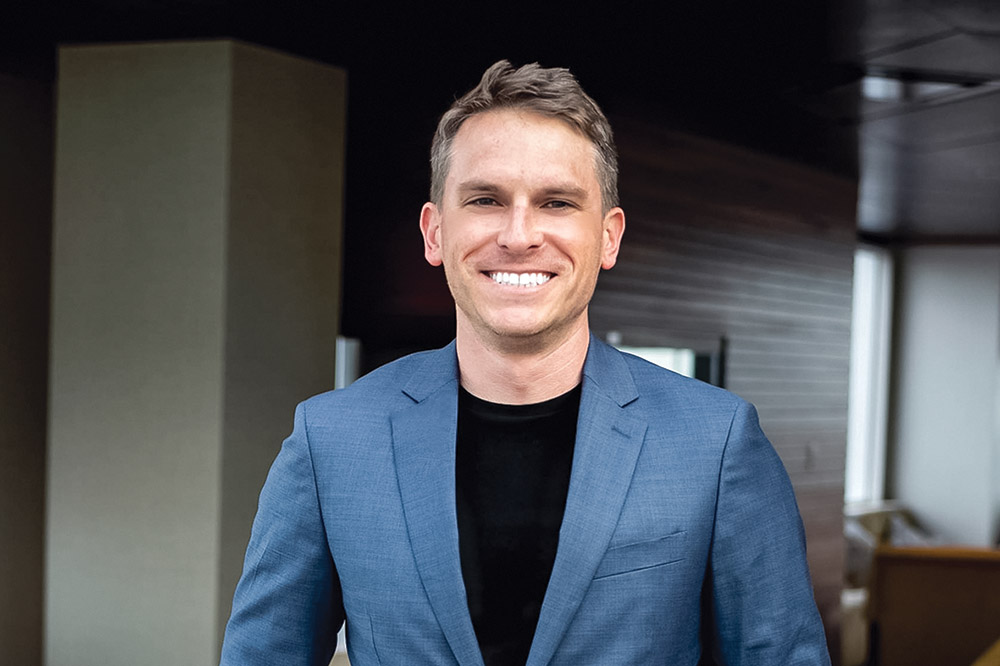
W. Michael Short
The shortcomings of traditional public health
“With all our expertise, public health is traditionally slow to act. We’re dependent on grants, for one—and that’s fine when it comes to funding research and formulating policies based on our findings, but it isn’t a sustainable approach,” Huang says.
Short seconds that view, saying “grants are fine in certain circumstances, but public health solutions need to have viable business models that can be scaled up.”
Ultimately, all initiatives, whether non-profit or for-profit, need to generate sufficient resources to be viable, Huang adds. While public funding is critical, it is simply not enough to meet the needs of public health.
The systems-level change the two men have in mind will require the active engagement of academics, communities, government actors and the private sector to spur investment in public health. Aligning the interests of these diverse stakeholders is at the heart of the way Firefly Innovations operates.
An urgent need to scale up public health solutions
In an article published in Frontiers in Public Health in May 2022, Huang and his co-authors use obesity as a prime example of a population health problem whose complexity has foiled all of his field’s best policies and interventions. In the U.S. alone, the prevalence of obesity grew from 30.5% in 1999-2000 to 42.4% in 2019-2020. As a major contributor to cardiovascular disease, diabetes, respiratory disease and some cancers, obesity is a greater scourge than ever.
It can take more than a decade to scale up public health innovations, and most of our research never gets that far, Huang says. That’s unacceptable. What’s needed is a way to scale up innovative interventions and practices so that these are adopted quickly at a systems level.
“To create systems change, we need an army that sits across all the different sectors of society and can be summoned to take action,” says Huang, whether on the obesity front or elsewhere on the battleground of public health.
An inside-outside strategy
Huang considers himself an “intrapreneur”—an entrepreneur who works from within; in his case, inside the public health academy.
In addition to the Summer Accelerator, Firefly Innovations has also designed courses and opportunities that provide hands-on experience for students, taught by faculty with deep experience in design thinking and startup ventures; faculty like Bruce Y. Lee, professor of health policy and management, who teaches a semester-long class on public health entrepreneurship. By integrating courses into the traditional public health curriculum, CUNY SPH is setting itself apart from its peer institutions by sending a new generation of public health graduates out into the world who are uniquely equipped to step into leadership roles and transform the organizations where they work.
Public health students and experts urgently need entrepreneurial skills, Huang says, but the converse is also true: businesses need the “public health lens”—the lens on health equity and the social determinants of health—as well as public health skills such as impact monitoring and evaluation. Embodying the principle and practice of innovation, Firefly Innovations is itself poised for growth, both inside and outside the academy.
SUCCESSFUL VENTURES
Here are just a few of the ventures that have gotten off the ground in a big way, thanks to Firefly’s Summer Accelerator program:

KELLS provides accessible, high-quality dental screening by combining clinicians and AI, making world-class dental care far more accessible. The company secured two significant contracts with health plans and won the New York Artificial Intelligence Summit pitch competition in December 2022.

Flextrapower is developing a multi-layer, graphene-infused textile mask for blocking COVID-19 viral particles. The startup received a $4 million grant for further research and development.

Mendü is a mental health platform that offers therapeutic audio-based prompts and exercises for underserved women. The startup has recently added seven new team members, plus they will soon launch the second iteration of their platform with additional features and functionality.
